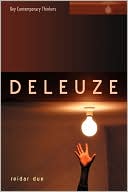Category Books
- Fiction Books & Literature
- Graphic Novels
- Horror
- Mystery & Crime
- Poetry
- Romance Books
- Science Fiction & Fantasy
- Thrillers
- Westerns
- Ages 0-2
- Ages 3-5
- Ages 6-8
- Ages 9-12
- Teens
- Children's Books
- African Americans
- Antiques & Collectibles
- Art, Architecture & Photography
- Bibles & Bible Studies
- Biography
- Business Books
- Christianity
- Computer Books & Technology Books
- Cookbooks, Food & Wine
- Crafts & Hobbies Books
- Education & Teaching
- Engineering
- Entertainment
- Foreign Languages
- Game Books
- Gay & Lesbian
- Health Books, Diet & Fitness Books
- History
- Home & Garden
- Humor Books
- Judaism & Judaica
- Law
- Medical Books
- New Age & Spirituality
- Nonfiction
- Parenting & Family
- Pets
- Philosophy
- Political Books & Current Events Books
- Psychology & Psychotherapy
- Reference
- Religion Books
- Science & Nature
- Self Improvement
- Sex & Relationships
- Social Sciences
- Sports & Adventure
- Study Guides & Test Prep
- Travel
- True Crime
- Weddings
- Women's Studies
Deleuze » (Revised)

Authors: Reidar Due
ISBN-13: 9780745630359, ISBN-10: 0745630359
Format: Paperback
Publisher: Polity Press
Date Published: February 2007
Edition: Revised
Author Biography: Reidar Andreas Due
Reidar Andreas Due is Lecturer in French at the Univesity of Oxford, Magdalen College.
Book Synopsis
This book provides a clear and concise introduction to the philosophy of Gilles Deleuze. It analyses his key theoretical concepts, such as difference and the body without organs, and covers all the different areas of his thought, including metaphysics, the history of philosophy, psychoanalysis, political theory, the philosophy of the social sciences and aesthetics. As the first book to offer a comprehensive analysis of Deleuze's writings, it reveals both the internal coherence of his philosophy and its development through a series of distinct phases.
Reidar Due offers an entirely new interpretation of Deleuze's philosophy, centred around the notion of thought as a capacity to form relations. These relations are embodied in nature, in language and in the unconscious; in art, science and social practice. With this concept of embodied thought, Deleuze challenges our most entrenched beliefs about the self and about signs whether linguistic or social. He develops an original theory of power and social systems and presents a method for understanding any signifying practice, from language and ritual to the unconscious, including cinema, literature and painting.
Due analyses the different strands in this theoretical edifice and shows its implications for a wide range of human sciences, from history and psychology to political theory and cultural studies.
Table of Contents
Acknowledgements vi
Introduction 1
Immanence and Subjectivity 21
Cultural Semiotics 57
A History of the Modern Subject 77
Social Ontology 116
Philosophy and Art 149
Conclusion: The Object of Philosophy 167
Notes 171
Bibliography 175
Index 184
Subjects
 Philosophy
Philosophy  European & American Philosophy
European & American PhilosophyPhilosophy
 European & American Philosophy
European & American Philosophy  French Philosophy
French Philosophy
